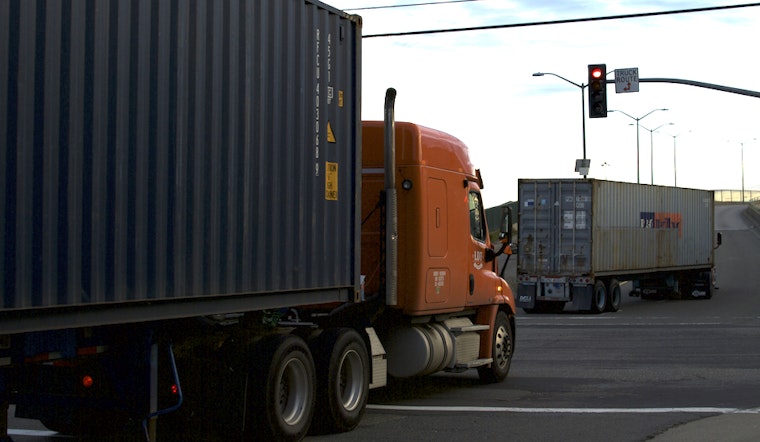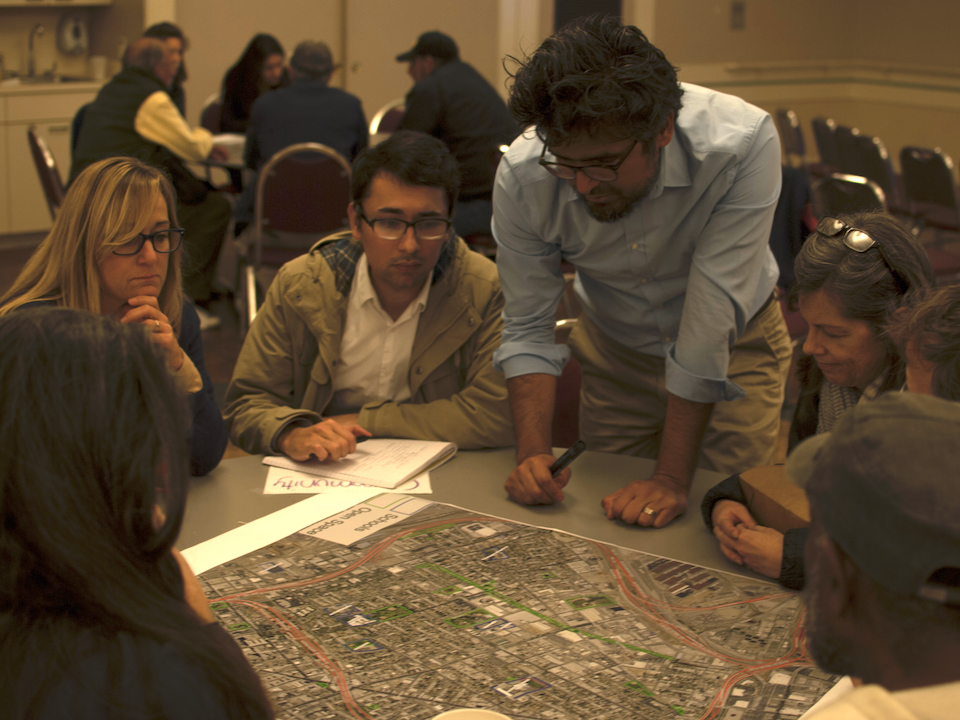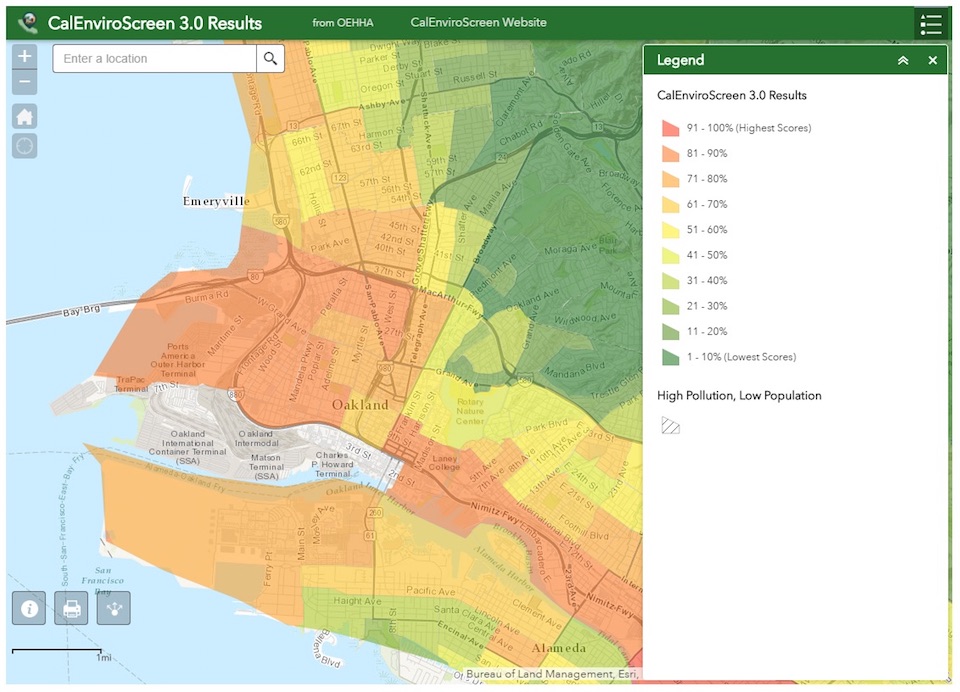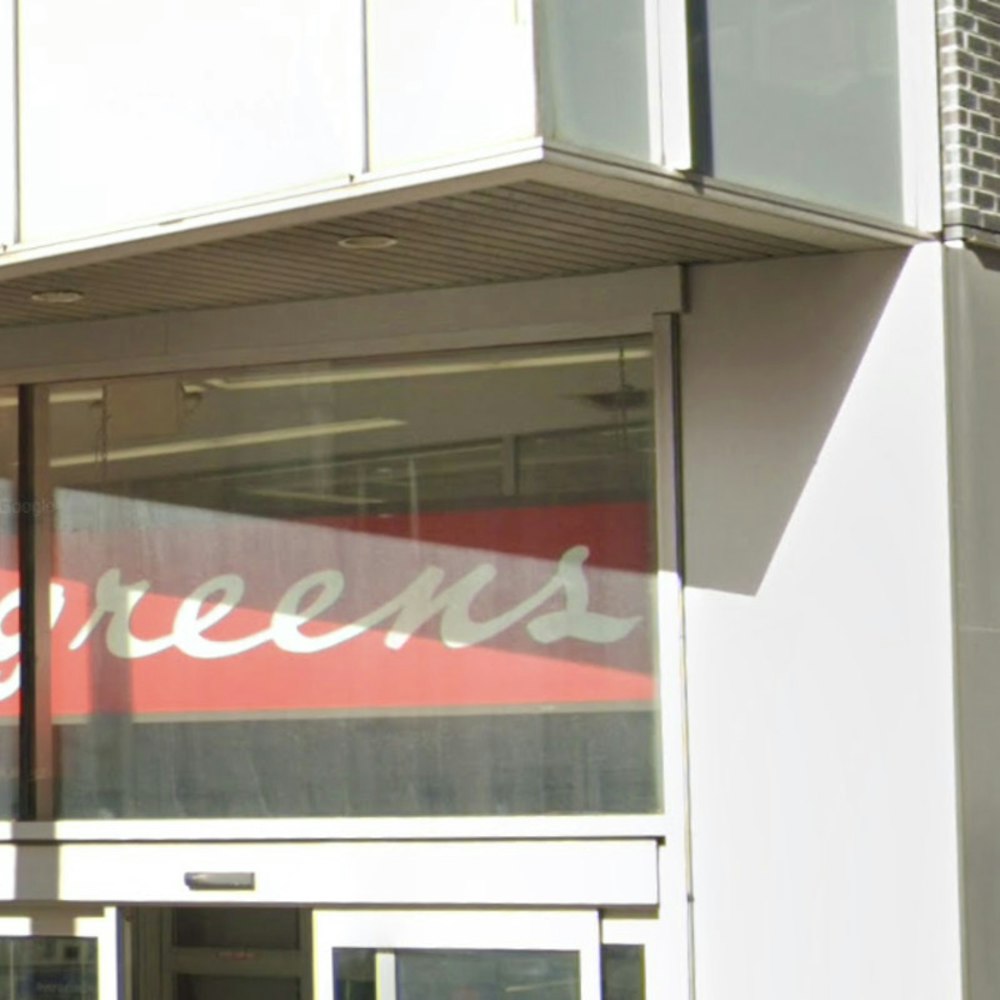
West Oakland can expect increased enforcement of trucking emissions, backyard businesses and stormwater runoff in the next few months as a new environmental justice task force gets to work, according to representatives of the state Environmental Protection Agency.
Representatives of CalEPA met with residents at the West Oakland Senior Center last night to strategize about tackling persistent pollution issues, such as West Oakland having the highest rates of asthma in the country, as well as contaminated soil and groundwater from toxic cleanup sites.

Arsenio Mataka and Christie Vosburg from the CalEPA task force told residents that they had already taken on projects in Fresno and Los Angeles, where they’d coordinated local, state and federal agencies to ensure that environmental regulations were enforced.
West Oakland was chosen in part through data analysis from the CalEnviroScreen system, an online tool that maps the state based on 20 environmental and socioeconomic indicators. The system helps implement state law requiring that 25 percent of the proceeds from California's cap-and-trade auctions be invested in disadvantaged communities.
Mataka said there is state funding available for environmental protection that the community probably isn’t taking advantage of because they don’t know how to get it. Many residents expressed frustration in navigating layers of local, state and federal bureaucracy — red tape the task force is intended to cut through.

Mataka and Vosburg pointed out similarities between West Oakland and the communities they visited in Los Angeles, where neighborhoods like Boyle Heights are also bounded on all sides by freeways and are zoned for both industrial and residential use.
In Los Angeles, the task force helped coordinate tests for truck emissions, made inspections of waste facilities and recycling centers, and cracked down on unregulated businesses such as an unlicensed metal plating shop. They also took on discount stores that sold potentially hazardous products, such as a package of barrettes that contained extremely high levels of lead.
Despite reports of decreasing carbon emission levels from the port, many residents remain skeptical that all truckers are complying with state emissions standards and want stricter enforcement.
Margaret Gordon, who has been working on pollution issues in West Oakland for 18 years through the West Oakland Environmental Indicators Project, said she heard about the task force while attending a symposium in Sacramento and encouraged them to come to Oakland.
“We don’t have good enforcement, and the city feels they don’t have a responsibility,” Gordon said.
Mataka said that he expects they will be cracking down on unregulated businesses skirting environmental standards; in group sessions at the meeting he asked members to point out where they might be.
Most of the work will be focused on short term improvements, but the task force may help get the ball rolling on some longer term cleanup projects. The work will all be completed within the next three or four months and after that they will bring their efforts to a different California community.









